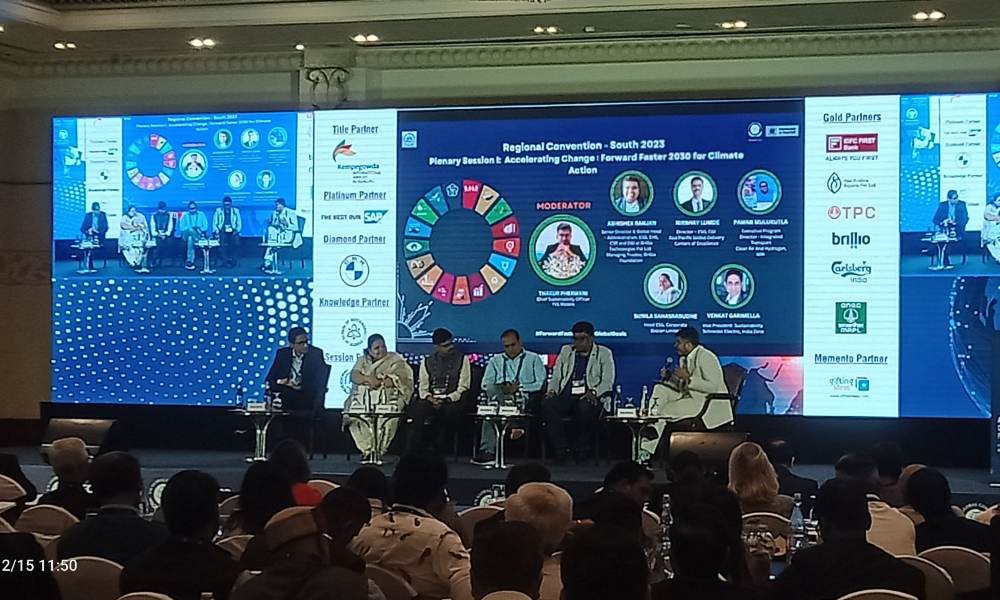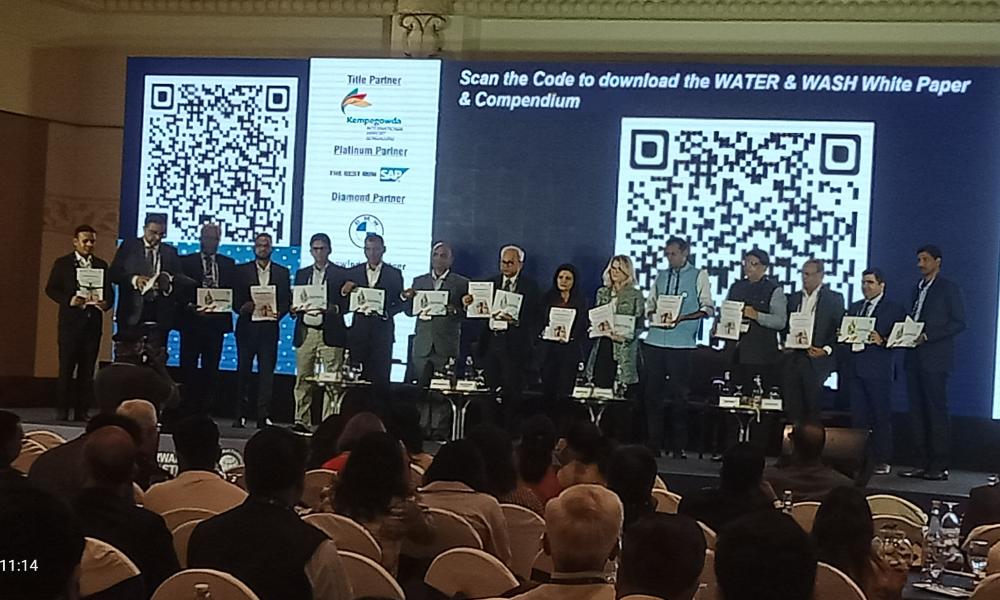Speakers and delegates at theUnited Nations Global Compact (UNGC) Regional Convention- South concur that corporates are not doing enough to adopt the ‘E’ or “Environmental” of Environmental, Social and Governance (ESG) principle.
High initial costs, lack of knowledge about the supply chain, consumer preferences and sustainability only to comply with the regulations are some of the challenges corporate houses face in becoming sustainable, as discussed at the UNGC Regional Convention- South, held on December 15 in Bangalore.
In the inaugural session of the convention titled, “Advancing Sustainable India: Driving change with Forward Faster 2030″, Dr. Ashwin Mahalingam, Head of School of Sustainability,IIT Madras, said that India is far from achieving the Sustainable Development Goals (SDGs) by the target year, 2030. A major contributing factor for it is that the corporate sector and Systems, Applications and Products in data processing (SAP) based companies are not sustainable enough.
He explained that challenges continue despite several efforts such as “Reuse, Reduce, Recycle”, adaptation of renewable energy for electricity needs and eco-friendly investments as part of Corporate Social Responsibility (CSR).Among the topics discussed in the first plenary session, were solutions to running sustainable businesses. Nirbhay Lumde from the Asia Pacific Global Delivery Centers of Excellence, said, “Becoming sustainable requires you to incur high initial costs, it is like installing solar panels in your home. However, in the long run, the company will become more energy efficient.”
Abhishek Ranjan,Senior Director at Brillo Foundation, said, “Being sustainable also becomes difficult due to consumers’ unwillingness to spend on a more expensive but sustainable product.” He added that, in reality very few people are genuinely concerned about the environment. “Additionally, sustainability has become tokenistic for many companies with them showcasing what they do for the environment, the responsibility of which ends with the Chief Sustainability Officer. Individual duty from everyone and collective efforts lack.”

Sunila Sahasrabudhe, Head ESG at Biocon said that the companies also need to inspect and check if all the parties down the supply chain comply with the sustainability norms. This is difficult, she said. It is also difficult to find suppliers who are transparent about their manufacturing processes and procurement of raw material, she added. She proposed that more consideration needs to be given by companies while selecting suppliers who manufacture products sustainably. “So, there have to be tweaks in the supply chain and a strategic procurement process to ensure sustainability.”
Shombi Sharp, the UN resident coordinator in India, addressed the developmental challenges in rural India like depletion of groundwater, lack of good schools and hospitals, soil erosion due to improper farming methods etc. He suggested that as part of their CSR, companies should invest in rural developmental projects.
Punit Renjen, Deputy Supervisory Chairman of SAP SE pointed out that Asia accounts for 51 percent of total global emissions and efforts to achieve the SDGs are not progressing at the right pace. “We have only achieved 12 percent of the SDGs, and 2030 does not far enough. He also talked of being the enabler and exemplar of the change one talks about. It is never enough to hold these conferences without embodying the changes discussed in them,” he said.
The Chairman and CEO of Oil and Natural Gas Corporation (ONGC), Arun Kumar Singh said that the promotion of green jobs and inclusive transition to sustainable operations in heavy industrial countries like India are important. His speech focused on “inclusivity within sustainability.”

Other environmentalists present at the convention agreed that the corporate sector in India is the source of several pollutants and contaminants in the form of industrial emissions, hazardous e-waste and habitat destruction. “It is therefore crucial that all profit making enterprises view sustainability as a business imperative to lead the earth towards a sustainable future,” Siddharth Chaudhury, CSR Manager, Indian Oil Corporation Limited concluded.




